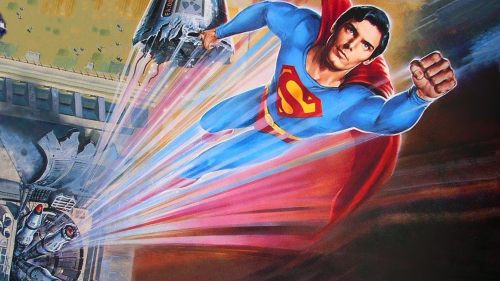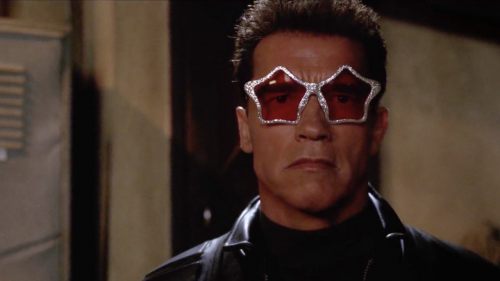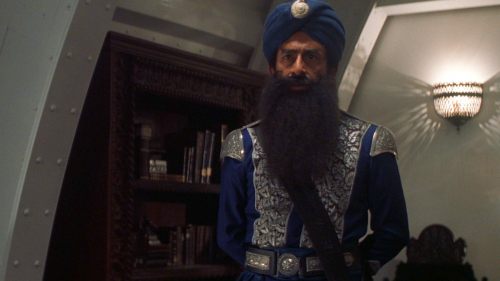Say Something Nice: POWER RANGERS
2017’s Power Rangers, directed by Dean Israelite and written by John Gatins, does one thing passably, two things very badly and one thing quite well. Gatins’ script takes the basic premise of the 1993 Mighty Morphin’ Power Rangers series and updates it to the present day capably enough. The evil space witch Rita Repulsa (Elizabeth Banks) escapes from centuries of imprisonment and sets about wreaking havoc with the help of her minions. She is opposed by Zordon (Bryan Cranston), an old foe. Zordon, trapped as a disembodied spirit, cannot act against Rita directly. Instead, he and his robot buddy Alpha 5 (Bill Hader) must call upon five teenagers (Dacre Montgomery, Naomi Scott, RJ Cyler, Becky G and Ludi Lin) to become the Power Rangers – masked heroes empowered by a combination of space magic and space science. Teenage bonding and monster/space witch punching ensue. It’s recognizably Power Rangers, given a fresh coat of paint.
Alas, the paint is filled with thinner. Mighty Morphin’s designs (inherited from Zyuranger, the entry in the long-running Japanese Super Sentai series from which Power Rangers installments draw footage, props and to varying extent stories) made the most of a limited budget – each Ranger costume stands on its own as a solid design while working within the shared pattern that marks them as a team. The movie’s designs, despite their higher production values, are ugly and overdone – each costume has both too much going on (the wide assortment of lines and panels) and too little (those lines and panels don’t really come together in any way). Mighty Morphin, in both the footage borrowed from Super Sentai and its own fight scenes, had some fun fight choreography that showcased real stunt work. Power Rangers buries most of its actions under gobs of pixels, especially during the climax. As a fan of contemporary low budget action, Power Rangers’ mostly-dull set pieces stand out all the more with the knowledge that the great director Isaac Florentine (Undisputed III: Redemption) did some of his first work on Mighty Morphin and consulted on the 2014 Power Rangers: Super Megaforce series. A Power Rangers movie that built its action on cool fight choreography and stunt work as opposed to mostly CGI could have been a great gateway to action cinema for young audiences. It’s a missed opportunity, to be certain.
But while Power Rangers’ title characters are stuck in dreadful costumes and their superheroic feats are rendered with all the panache of a blindfolded platypus, they themselves are a genuinely lovable bunch. Montgomery, Scott, Cyler, G and Lin take their broad, archetypal teen characters and find the real in their stories – both in their issues and in the bond they forge. Montgomery’s Jason grapples with the promising future in football he wrecked with a stupid prank. Scott’s Kimberly feels tremendous guilt for having once been a callous jerk who viciously bullied a friend. Cyler’s Billy is himself bullied for his autism and both excited and nervous to make friends. G’s Trini struggles with overly strict parents and has begun to question her sexual identity. Lin’s Zack worries over the health of his ailing mother and clashes with his teammates. Despite the Rangers’ assorted personal struggles and their tension with each other, they come to care about one another – enough to worry about whether or not their newfound friendship will survive past the mission that brought them together in the first place.
Consider the following scene, a hangout around a campfire in the wake of a frustrated effort to unlock the powers that give them their team name:
On their own, free of Power Rangers’ scrambled sound and fury, the Ranger ensemble play off each other wonderfully. I like these characters, I want them to work through their issues and win the day. Their grief after a poorly conceived attack on Rita gets one of them killed (temporarily, thanks to story shenanigans) is moving. And as monotonous and obnoxious as Power Rangers’ climax gets (culminating in a theoretically epic brawl between Rita’s titanic magical beast Goldar and the Rangers’ giant Megazord that mostly just reinforces how poorly the film handles its action), it cannot subsume the Rangers’ charm completely. When Rita gains the upper hand and stands on the verge of dumping the Rangers into a convenient pit of lava, Billy thanks the others for being his friends. Even slathered in weightless CGI, the moment shines thanks to the work Cyler and his fellows do. They deserved a better movie.



